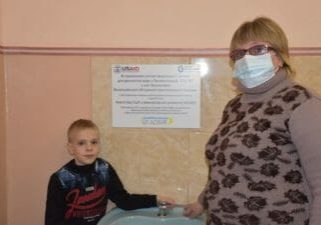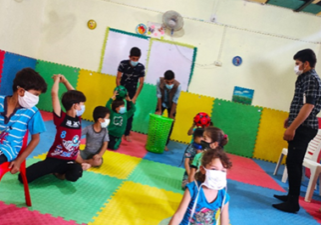News > Blog
Local Governance Actions for Proper Transferring of Communal Property for Rent
Published 08/14/2020 by globalcommunities
In December 2019, new legislation on renting state and communal property came into force in Ukraine, which significantly altered the approaches to asset management. The situation became complicated by the fact that since mid-June, procedures for the abovementioned policy had not been adopted. With the new national order, the number of related questions was rising, as its procedure was too wide. The end users came across many issues on how to carry out communal property rental capabilities — for the transitional period, prior to electronic trade system launch. The frequent questions at the local level touched upon the possibility to extend the leasing established within the previously adopted policies and under the requirements of the effective legislation.
USAID-funded “Decentralization Offering Better Results and Efficiency” (DOBRE) Program operates in 75 consolidated communities (CCs) to improve local capacities for public asset management and other property. During 2019-2020 DOBRE partner CCs adopted 228 policies, procedures and other programmed document packages concerning asset management. The CCs implemented 340 individual tools aimed at building up efficiency of asset management, part of which related to communal property rental. Since the question under discussion is one of the most important asset management instruments in CCs, DOBRE received over 200 questions from local governance representatives and individuals who could potentially rent communal property.
To meet the requests from participating CCs, USAID DOBRE developed materials which provide necessary explanation and guidance on the following:
General issues on communal property rental encompassing definitions: for rental and leasing, rental facilities and lease holders; lists of rental amenities; mechanism for decision making on including rental amenities to the proper listing; procedures for rent and lease management; stages for transferring communal property to rent; pricing for rental facilities; documentation to develop and be approved by the local council prior to transferring public assets for lease; and contract format. The material is available by accessing this link.
Algorithm for passing down the assets for rent, initiated by a potential leaseholder – The material is available by accessing this link.
Algorithm for lease contract prolongation (without auction and by means of conducting an auction) – the material is available by accessing the link.
Template of local council resolution on adopting the policy for CC public asset for rent and for ensuring proper asset lease management, including a template of such policy document. The material is available by accessing this link .
Template for temporary procedure for CC property rental management. DOBRE experts developed this policy to prevent mismanagement in leasing public property, and to ensure overall open, transparent and community controlled activities by local governance representatives, enterprises, entities and organizations in a CC. The policy, on a temporary basis, prior to the electronic trade system (hereinafter, ETS) operations, regulates issues on publicizing information in ETS; on sending data about potential rental facilities; request submission, including requests for leasing; publishing in ETS lists of communal property of the first and second type; lease contracts, compiled without auction holding, alterations and amendments to lease contracts. More detailed information is available by accessing this link.
Recorded video of the webinar highlighting the above listed communal property rental issues is available by accessing this link.
USAID DOBRE explained and provided these guidance resources in order to help local governance representatives in their daily operations. Proper utilization of the practical data and advice will allow CCs to grow their investment attractiveness, create and encourage further evolvement of business in communities, and increase local budgets with revenues coming from communal property rental.
This publication is made possible by the generous support of the American people through the United States Agency for International Development (USAID). The contents are the responsibility of Global Communities and do not necessarily reflect the views of USAID or the United States Government.






